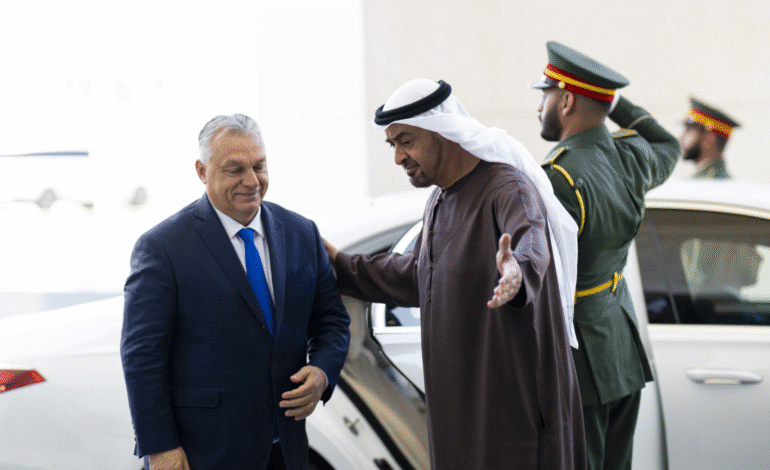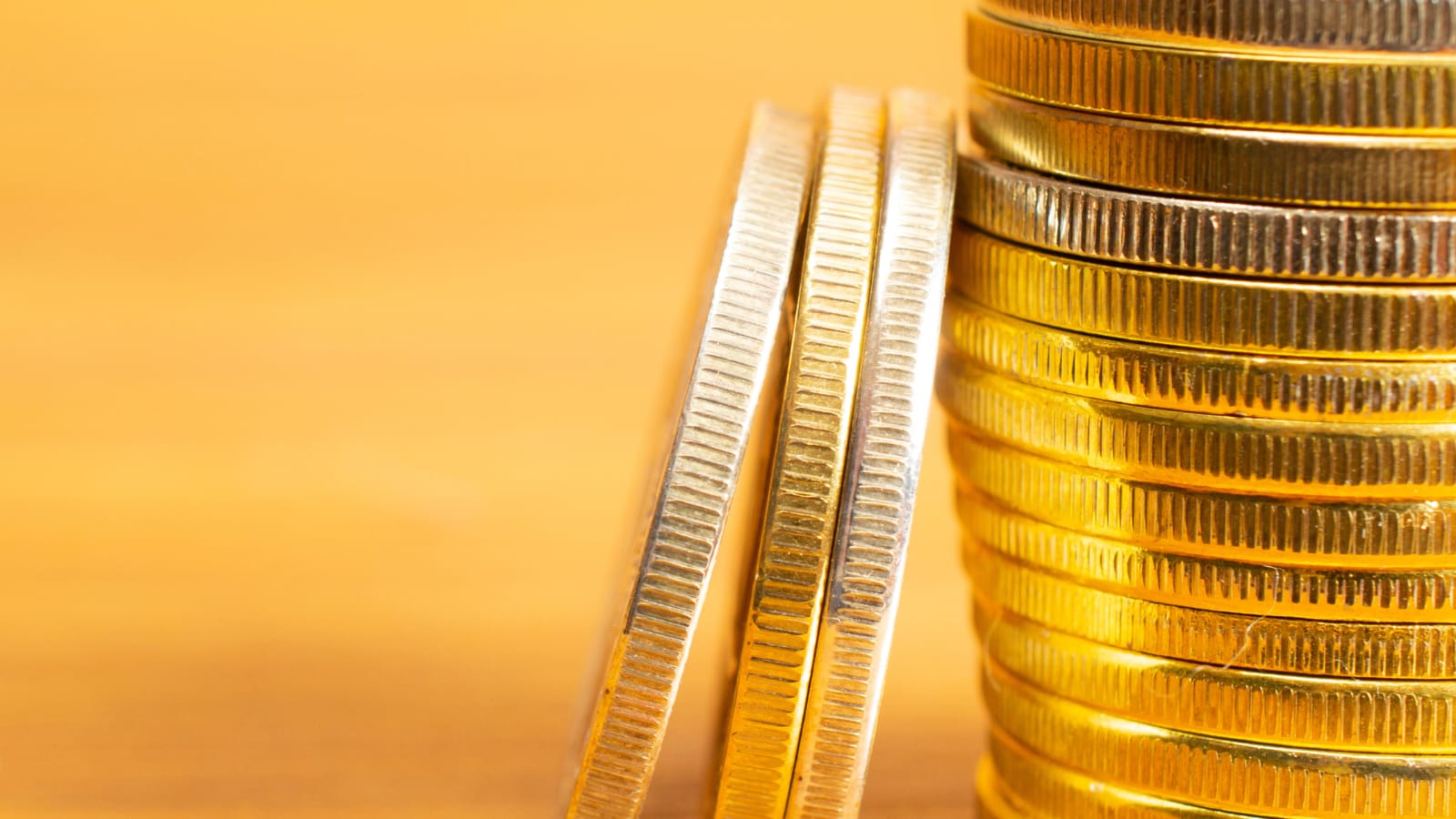UAE-Hungary Agreements 2025: Boosting AI, Energy, Defence Tie

UAE President His Highness Sheikh Mohamed bin Zayed Al Nahyan embarked on an official visit to Hungary, marking a significant milestone in UAE-Hungary relations. During his visit to Budapest, Sheikh Mohamed met with Hungarian Prime Minister Viktor Orbán to discuss strategies for enhancing bilateral cooperation and advancing the development ambitions of both nations. The meeting, held at the Prime Minister’s Office, focused on deepening ties in critical sectors such as artificial intelligence (AI), renewable energy, food security, and defence cooperation. The leaders witnessed the signing of multiple agreements and memoranda of understanding (MoUs), reinforcing their commitment to fostering economic growth, innovation, and global stability. This article explores the outcomes of this historic visit, the significance of the agreements, and their implications for the UAE and Hungary’s shared future.
A Warm Welcome in Budapest
Sheikh Mohamed’s arrival in Budapest on July 17, 2025, was marked by a warm reception, with his aircraft escorted by Hungarian military jets, symbolizing the strengthening bond between the two nations. Accompanied by a high-level UAE delegation, including ministers and senior officials, the visit underscored the UAE’s dedication to building strategic partnerships worldwide. The delegation included prominent figures such as Dr. Sultan bin Ahmed Al Jaber, Minister of Industry and Advanced Technology, Dr. Thani bin Ahmed Al Zeyoudi, Minister of Foreign Trade, and Faisal Al Bannai, Chairman of EDGE Group, reflecting the UAE’s focus on economic, technological, and defence collaboration.
The meeting at the Prime Minister’s Office provided a platform for Sheikh Mohamed and Orbán to explore opportunities for collaboration in key areas, including trade, investment, infrastructure, and renewable energy. Both leaders emphasized the importance of aligning their development goals to promote sustainable growth and mutual prosperity. The discussions also touched on regional and global developments, highlighting the shared commitment to fostering peace and stability through international cooperation.
Agreements and MoUs: A New Era of Cooperation
A key highlight of the visit was the exchange of several agreements and MoUs, which aim to expand bilateral cooperation across diverse sectors. These agreements cover critical areas such as data centres, artificial intelligence (AI), green energy, food and agriculture, family and youth policy, government modernization, energy storage systems, and defence cooperation. The signing ceremony, held in Budapest, was attended by high-ranking officials from both nations, including UAE’s Sheikh Abdullah bin Zayed Al Nahyan, Deputy Prime Minister and Minister of Foreign Affairs, and Hungary’s Peter Szijjarto, Minister of Foreign Affairs and Trade.
The MoUs reflect a shared vision for innovation-driven development. For instance, cooperation in AI and data centres aligns with the UAE’s ambition to become a global leader in advanced technology, while Hungary benefits from the UAE’s expertise in digital transformation. Similarly, agreements in green and renewable energy support both nations’ commitments to sustainability and climate goals, with the UAE’s Net Zero 2050 Strategy serving as a model for environmental leadership. The focus on food and agriculture aims to enhance food security, a priority for both countries, while family and youth policy initiatives promote social cohesion and community development.
The inclusion of defence cooperation underscores the strategic nature of the partnership, with the UAE’s EDGE Group playing a pivotal role in advancing defence technology collaborations. These agreements build on earlier discussions between Sheikh Mohamed and Orbán, including a meeting in Abu Dhabi in January 2025, where both leaders laid the groundwork for enhanced economic, trade, and investment ties.
Economic and Trade Opportunities
The UAE and Hungary share a mutual interest in fostering economic growth through diversified partnerships. The agreements signed during the visit are expected to boost trade and investment flows, particularly in non-oil sectors. The UAE’s economic diversification strategy, which has driven its real GDP growth to a projected 4.4% in 2025, aligns with Hungary’s focus on developing its technology and infrastructure sectors. The UAE’s robust non-oil foreign trade, which reached Dh835 billion in Q1 2025, positions it as a key partner for Hungary in expanding its economic footprint in the Middle East.
The UAE’s investment in data centres and AI is particularly significant, given its leadership in smart city initiatives and digital transformation. Hungary, with its growing tech ecosystem, stands to benefit from the UAE’s expertise in these areas. Similarly, the UAE’s advancements in renewable energy, such as solar and wind projects, offer opportunities for Hungary to accelerate its transition to clean energy. The agreements also pave the way for joint ventures in food and agriculture, addressing global challenges like food security and sustainable farming.
Strengthening Global Stability and Peace
Beyond economic and technological cooperation, Sheikh Mohamed and Orbán discussed the importance of international collaboration in promoting peace and stability. The UAE’s proactive role in global diplomacy, including its support for Syria’s sovereignty and condemnation of Israeli strikes, reflects its commitment to regional stability. Hungary, as a key player in European politics, shares the UAE’s emphasis on diplomacy and dialogue to resolve global conflicts. The leaders reaffirmed their commitment to working together on international efforts to address pressing global challenges.
The UAE’s humanitarian outreach, which has delivered Dh368 billion in aid to over one billion people worldwide, was also highlighted as a model for global cooperation. Hungary’s alignment with the UAE’s values of tolerance and coexistence strengthens the foundation for their partnership, fostering initiatives that promote cultural understanding and social progress.
Building on a History of Collaboration
The 2025 visit builds on a history of growing UAE-Hungary relations. In January 2025, Hungarian Prime Minister Viktor Orbán visited Abu Dhabi, where he met with Sheikh Mohamed to discuss economic, trade, and renewable energy cooperation. The establishment of the UAE-Hungary Joint Economic Committee and Political Consultations Committee has further solidified bilateral ties, providing a framework for ongoing collaboration. The UAE’s Comprehensive Economic Partnership Agreements (CEPAs) with various countries, including those in Europe, underscore its strategy of fostering mutual prosperity through open trade and investment.
The involvement of key UAE entities, such as Mubadala Investment Company and Eagle Hills Properties, in the agreements highlights the UAE’s commitment to supporting Hungary’s development projects. For instance, Eagle Hills’ involvement in Serbia’s Belgrade Waterfront project, visited by Sheikh Khaled bin Mohamed bin Zayed Al Nahyan alongside Orbán in 2023, demonstrates the UAE’s long-standing investment in urban regeneration and infrastructure in the region.
Implications for the Future
The agreements signed during Sheikh Mohamed’s visit to Hungary mark a new chapter in UAE-Hungary relations, with far-reaching implications for both nations. By focusing on emerging technologies like AI and sustainable energy, the partnership positions both countries as leaders in innovation and environmental stewardship. The emphasis on food security and agriculture addresses global challenges, while defence cooperation strengthens strategic ties in an increasingly complex global landscape.
For the UAE, the visit reinforces its role as a global hub for trade, technology, and diplomacy. For Hungary, the partnership provides access to the UAE’s expertise in digital transformation and renewable energy, supporting its ambitions to modernize its economy. The agreements also pave the way for cultural exchanges and youth initiatives, fostering stronger people-to-people connections between the two nations.
A Partnership for Progress
The official visit of Sheikh Mohamed bin Zayed Al Nahyan to Hungary on July 17, 2025, and the subsequent signing of agreements and MoUs with Prime Minister Viktor Orbán underscore the UAE’s commitment to building strategic partnerships that drive economic growth and global stability. By focusing on sectors like AI, renewable energy, food security, and defence, the UAE and Hungary are laying the foundation for a prosperous and sustainable future. As both nations continue to collaborate, their partnership serves as a model for international cooperation rooted in mutual respect and shared ambitions.








1 Comment
[…] energy, finance, culture, education, and advanced technologies. For observers and businesses in the UAE and broader Middle East, understanding these dynamics is key to identifying new investment channels, joint ventures, and […]
Comments are closed.